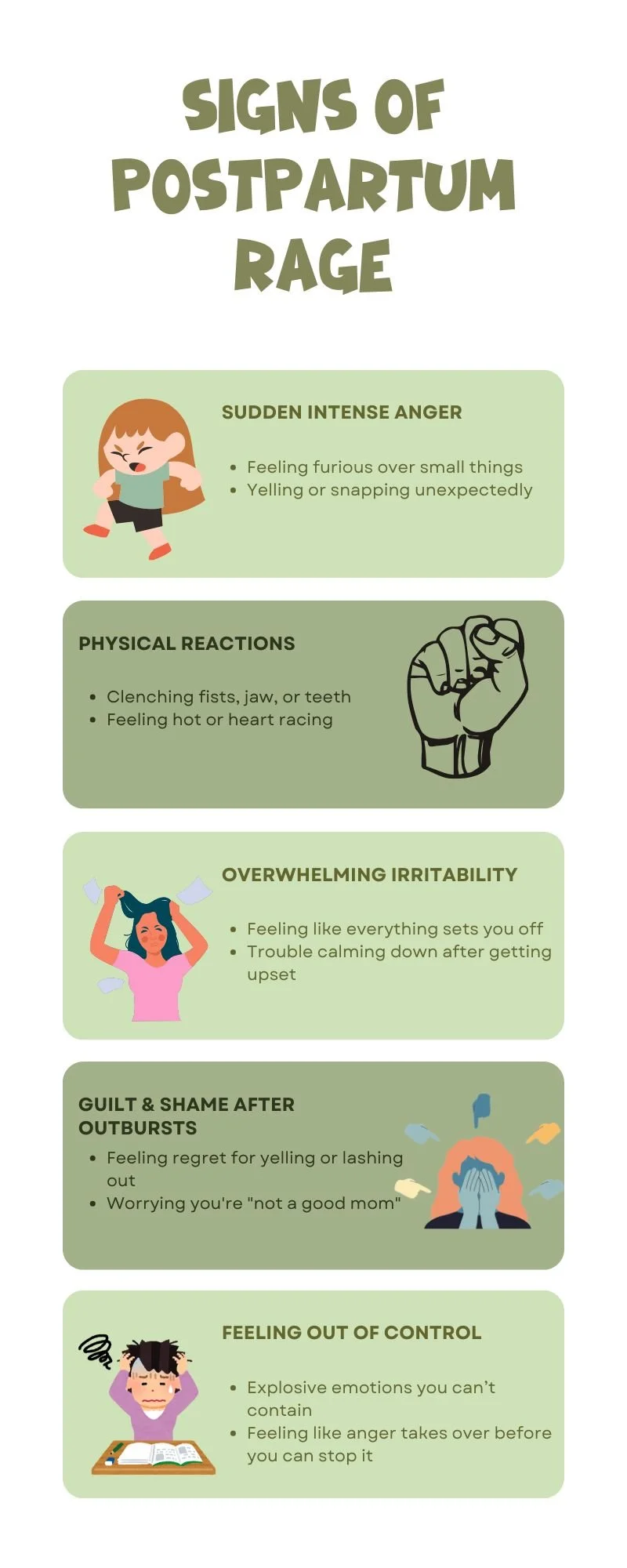Understanding Postpartum Rage: When Motherhood Feels Like Fury
Motherhood is often painted as a time of joy and tender moments, but what happens when instead of feeling calm and connected, you find yourself snapping over the smallest things? Maybe it’s the way your partner loads the dishwasher, the baby’s constant crying, or the feeling that no one truly understands what you’re going through. The anger surges—fast, hot, and overwhelming.
This is postpartum rage, a lesser-discussed but very real experience for many new parents. Unlike typical mood swings, postpartum rage can feel uncontrollable and isolating, leaving you wondering, Why am I so angry? and Is this normal?
In this post, we’ll explore what postpartum rage is, why it happens, and most importantly, how you can navigate it with compassion and support. Whether you’re in the thick of it or supporting someone who is, know this: you are not alone, and there is help available.
Postpartum rage happens due to a combination of hormonal shifts, sleep deprivation, emotional overload, and unprocessed trauma. Here’s a breakdown of the key causes:
1. Hormonal Changes
After childbirth, estrogen and progesterone drop rapidly, which can impact mood regulation and increase irritability. These hormonal fluctuations can make emotional responses feel more intense and difficult to control.
2. Sleep Deprivation & Exhaustion
New parents are often running on little to no sleep, which weakens emotional regulation and makes frustration more difficult to manage. Lack of rest can amplify stress and lower tolerance for everyday challenges.
3. Overstimulation & Sensory Overload
Constant noise, touch, and demands from a newborn can overwhelm the nervous system. When the brain is in a constant state of alertness, even small irritations can trigger a disproportionate response.
4. Unmet Needs & Lack of Support
Many parents feel isolated or unsupported, which can lead to resentment. If a mother feels like she’s carrying the mental and physical load alone, frustration can build into anger.
5. Past Trauma & Emotional Suppression
For some, postpartum rage may be linked to past trauma, including birth trauma, childhood experiences, or unresolved emotional pain. If these feelings aren’t processed, they may come out as anger.
6. Unrealistic Expectations & Pressure
Society often paints an unrealistic picture of motherhood, where moms are expected to be patient, selfless, and happy. When reality doesn’t match this expectation, it can create guilt, frustration, and rage.
7. Underlying Mental Health Conditions
Postpartum rage is often linked to postpartum depression (PPD) or postpartum anxiety (PPA). It can also be a sign of postpartum OCD or PTSD, where intrusive thoughts and fear manifest as anger.
What You Can Do: If you’re experiencing postpartum rage, know that you’re not alone, and it’s not your fault. Seeking therapy, prioritizing rest, asking for help, and practicing self-compassion can all help you manage these intense emotions.
If you need additional support, schedule a consult now!

